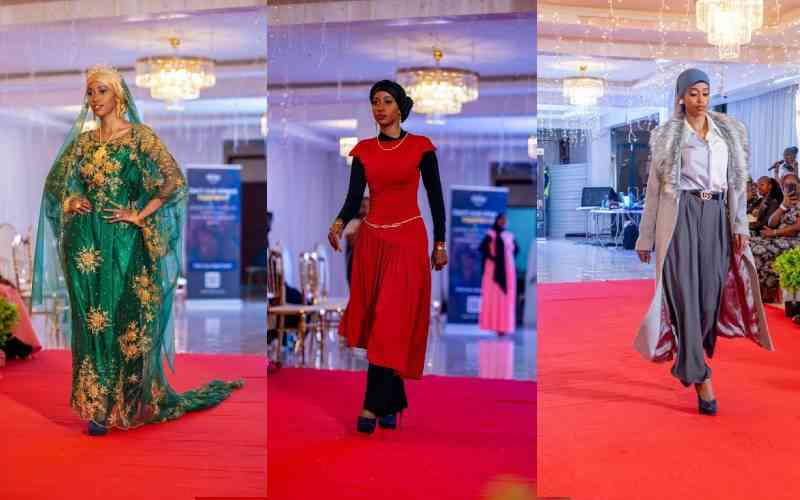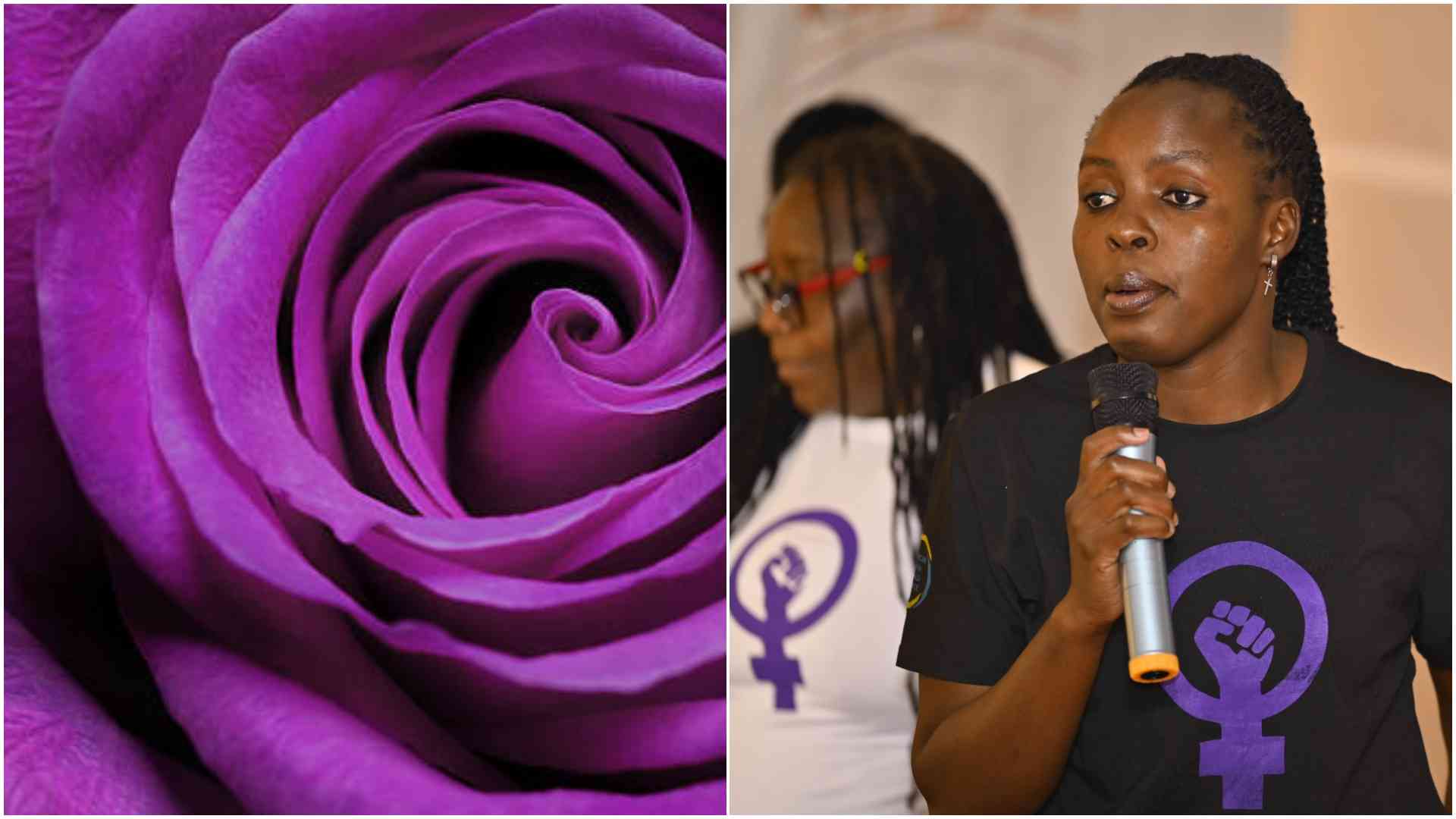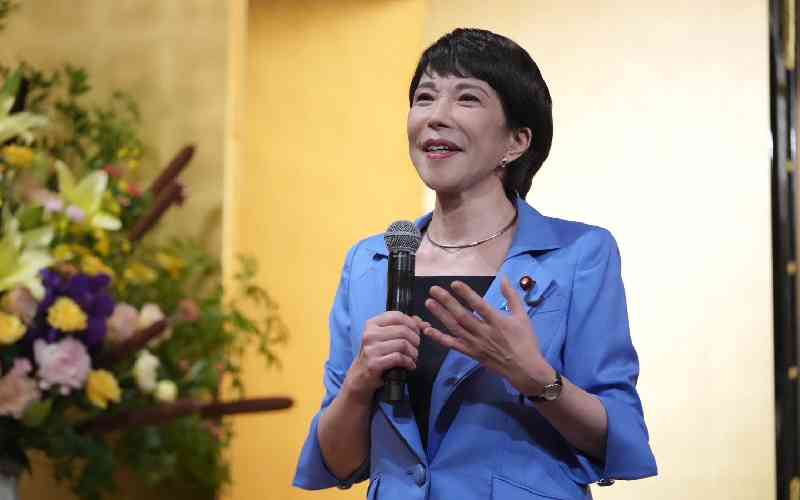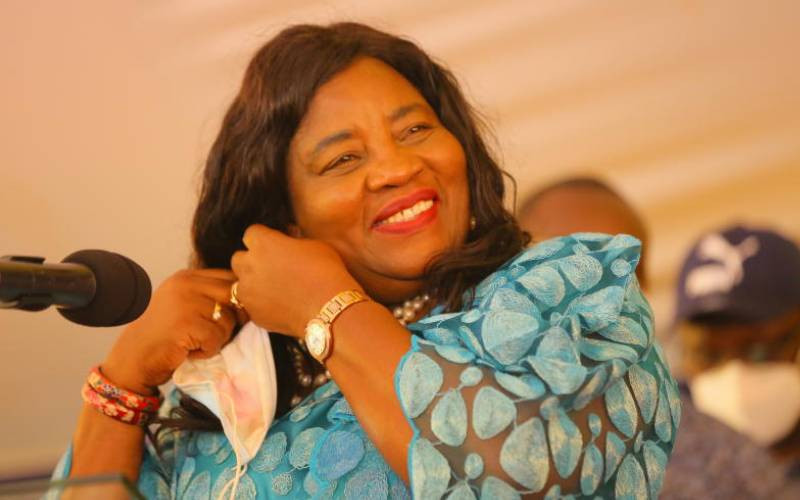
The ‘no blood should hold us back’ ad showcases some female athletes crushing a rugby game, a run, a mountain biking route, and a ballet routine, pushing through whatever scrapes, bumps and bruises they get along the way. The ad implied that if we can push through the pain during our workout, we shouldn’t need to worry about whether our tampon is going to leak. Bleeding once a month only makes us tough. It is the stigma around period blood that Florence Kamaitha, founder of Pad Heaven sought to overcome when she started her business, Pad Heaven.
Florence was in school and running a water branding business when a friend invited her to fundraise for desks for a school in Thika. “It was a mixed, public primary school. After we distributed the desks, the children went out to play and I noticed only a handful of girls at the school. I asked one teacher where the girls were, and she told me it was that time of the month.”
Until that moment, it had never occurred to her that the girls could miss school due to lack of sanitary towels.

Taking action
Following the realisation and a willingness to help, she did what other women and organisations had been doing. “I gathered a few friends and we raised funds to buy sanitary pads for this particular school. We delivered the pads the following month and each girl received enough pads to last them a year.
“A week later, another school called for help and she did the same. However this time, the teacher made a special request. “She asked if we could provide panties as well. So we did.
“More schools kept calling with the same need and we realised it was becoming too expensive to purchase and distribute disposable pads.
“At this point, I started researching affordable ways used around the world. It was during this research that I found out that when girls can’t afford or access disposable sanitary pads, they use mud, rags, leaves or pieces of cloths to stop the bleeding, but these end up falling off, or leaking. Besides the discomfort that this brings, it could lead to severe infections. While various initiatives are increasing access to affordable, washable pads, many girls still lack access to panties. Without panties to hold washable pads in place, the struggle to manage menstruation continues.
“This is when I decided to research on washable pads. I found some YouTube channels that showed how to, and I made the first one by hand.”

During the distribution of pads, she would have sessions with the girls to talk about menstruation. “It was then I discovered that the girls don’t have an idea of what menstruation is, even though some had already had their monthly flow,” she says of the talks followed by numerous questions from the girls on menstrual health.
As a result, she decided to write a menstrual health manual. The manual which costs Sh150 covers what menstruation is, pain management, keeping healthy while on your menses, proper diet and hygiene, use and disposal of pads. Years later, the manual would birth her book, Path to Womanhood, a menstrual hygiene book for school girls published by Kenya Literature Bureau. “Besides providing safer low-cost menstrual materials, information on proper menstrual hygiene could reduce reproductive and urinary tract infections,” she says of her need to publish the book.
After making the first sample, she purchased the materials needed to make washable pads and made some more.
Through a friend who had some projects at Langata Women’s Prison, Florence made contact with the Officer-in-Charge. “I proposed they give us space at the prison to train women to make these washable pads. This would teach the women a skill that they could use after their release, as well as earn them a stipend while in prison.”

Running a start-up
On her end, this arrangement would take care of the space and manpower issue that most startups encounter when starting out. “I got a grant of Sh500, 000 from Angels to Angels Network. With it, I purchased 10 sewing machines and raw materials to start us off. I got a trainer who trained the women for three months, before commencing production.”
Florence clearly recalls the drama around her first order. “I did not have packing bags, yet I had promised the client that I would deliver in three days. It was a big challenge seeing that the women at the prison only worked four hours a day so it was hard to push them to deliver. I had to outsource the services at Uhuru market and I delivered the products a week late. Needless to say, the client was not impressed with our time keeping.”
She has had many orders since and has learnt a thing or two in the process. “One thing I wish I knew is that materials are seasonal and sometimes you have to buy in bulk when they are in season. I have had to stop production a few times as we lacked some materials and were forced to import, which took time.”

Taking off
We opened our second workshop last year. We employed some of the women we trained at Langata Women’s Prison. We expanded our capacity and started shipping our products to South Sudan.
I now import materials beforehand, to prepare for the months that we will not have materials. I also ensure we have enough stock ready for any order so we don’t do a last-minute rush, however, this is very capital intensive.
Besides the re-usable sanitary products, Pad Heaven also stocks a back to school dignity kit which contains 4 pads, 3 panties, a face flannel, a bar of soap and a menstrual hygiene book. “We came up with this product, seeing that many girls in rural areas lack undergarments while growing up.”
“On this journey, I believe there are better days ahead and that helps me survive in business.”
Her advice to other entrepreneurs is “Be proud of your achievements, no matter how small. Take every chance you get to talk about what you do. Someone somewhere will remember.”
 The Standard Group Plc is a multi-media organization with investments in media
platforms spanning newspaper print
operations, television, radio broadcasting, digital and online services. The
Standard Group is recognized as a
leading multi-media house in Kenya with a key influence in matters of national
and international interest.
The Standard Group Plc is a multi-media organization with investments in media
platforms spanning newspaper print
operations, television, radio broadcasting, digital and online services. The
Standard Group is recognized as a
leading multi-media house in Kenya with a key influence in matters of national
and international interest.











